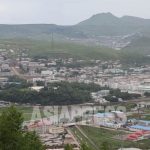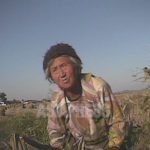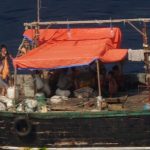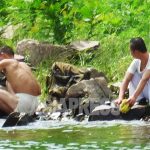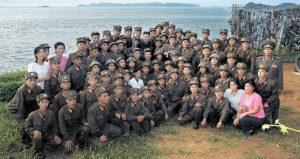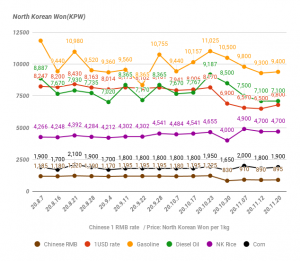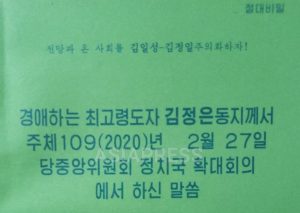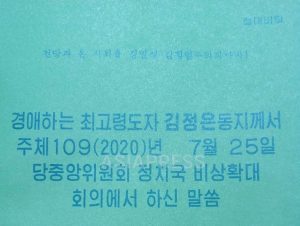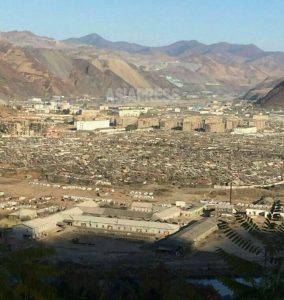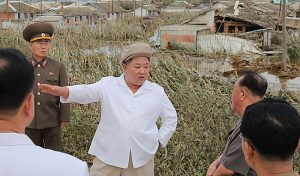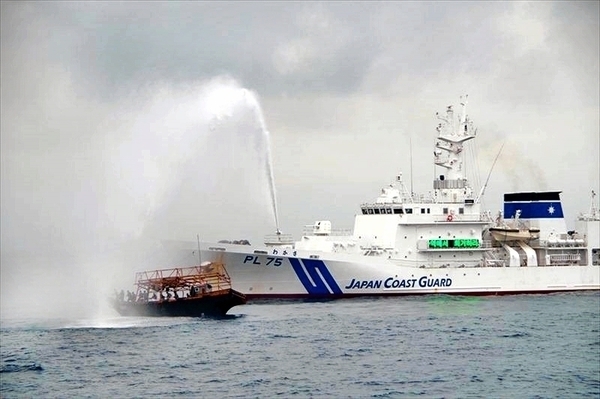
The Japan coast guard sprays a North Korean fishing boat that has drifted into the exclusive economic zone (EEZ). Taken by Japan Coast Guard, July 2017.
2017/Dec/11
Wooden boats from North Korea have been washing ashore in Japan. ASIAPRESS asks what is behind these ghost ships. (ISHIMARU Jiro)
Many of North Korea’s ghost ships wash ashore as wrecks, but the ships found in Akita and Hokkaido are in good condition, with drying racks still erected on deck. Similar ships were found by the Japan Coast Guard near Yamatodai, in July, squid still hanging on the racks.
Squid season in North Korean waters is twice a year, June-July and October-November. Squid caught during this time are usually exported to China or consumed by North Koreans able to afford them. While it is not certain that the ghost ships are squid boats, it is a fair assumption to make, as they were found deep in Yamatodai, a well known autumn fishing ground.
*Is the military doing fishing?
One of the ships found drifting off Matsumae, Hokkaido had the sign, “854 Troop of the Korean People’s Army,” attached to the side. This has contributed to pundits incorrectly speculating that the DPRK military is fishing in Japanese waters. ASIAPRESS explains that there are two means by which the DPRK military engages in business practices:
In the 1990s the Kim Jong-il regime faced an economic meltdown. The state struggled to provide even basic supplies to the Korean People’s Army, consequently, the military were ordered to procure their own food, clothes and daily necessities. As the military was also in need of capital and one of its sub-organizations, the department of munitions, also known as the “Logistics Office,” started a fishing business. They outsourced the task of fishing to civilians on the proviso that earnings from each catch would go to procuring military necessities and providing for soldiers. Kang Ji-won, a defector with knowledge about the fisheries industry in North Korea and its connection to the military explained, “The fishermen are mostly civilians, but some are civilian employees of the military and carry out miscellaneous tasks while on board.”
The other way by which the military engages in business is through North Korea’s new rich, known as “Donju.” Donju obtain military signage from the Korean People’s Army and use this state recognition as a platform for commercial fishing. Officially, private enterprises do not exist in North Korea and Donju’s strategy is a means of getting around this prohibition by doing business under a powerful organization like the Labor Party or the military. They must pay for the signage, of course. This kind of profit-seeking new company is called a “Base.” The head of the company is known as the, “Head of Base.”
Donju conduct commercial enterprise in the name of the military and their fishing vessels can pass North Korean coast guard checkpoints without difficulty.
Next Page:People who want cash are rushing in...
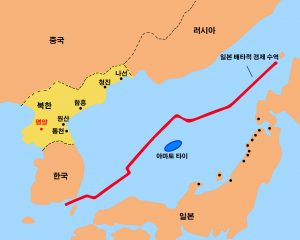
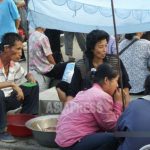

![[Video Report] People under pressure for requisition of military provision](https://www.asiapress.org/rimjin-gang/wp-content/uploads/2018/07/20140129_R_asiapress1X450-150x150.jpg)
